GFPP24 program
Updated October 18, 2024

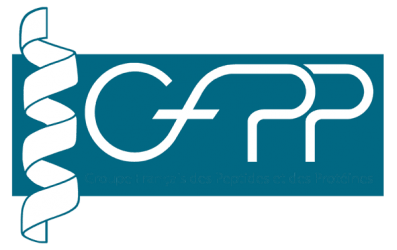
Groupe Français des Peptides et Protéines
French Peptide Society
GFPP24 program
Updated October 18, 2024
GFPP24 abstract submission form
Guidelines for oral presentations
The official language of the meeting is English.
The recommended presentation is in 16:9 format (allowed file extensions: .ppt, .pptx, .odp, .pdf)
Possibility to use your own laptop via an HDMI port or a local computer via a USB stick.
Guidelines for oral presentations
The posters should be in A0 format in portrait orientation (no landscape).
| Note: After submitting your abstract, you will receive a confirmation by email. For any question contact us at: |
Abstract submission & guidelines
Important deadlines:
31st January 2025: Closing of the oral communication submission
28th February 2025: Closing of the poster communication submission
Abstract submission
Please, use the following template to prepare your abstract:

Please name the file as follows: GFPP24_Abstract_YourName
Clicking on the button will redirect you to the abstract submission form
Bursaries
Grants covering the costs of registration and accommodation at the GFPP24 – ItPS5 meeting are awarded to PhD students or post-docs presenting an oral communication or a poster.
Around 20 scholarships will be awarded by the French-Italian scientific committee.
To be considered for a GFPP24 grant, you must register, fill in the bursary request option in the registration form and submit your abstract for Oral Communication or Poster before 31st of January 2025.
The results will be communicated by email. In case of a negative response, the registration and accommodation fees will be due by order form (only for French academic laboratories) or bank transfer.
Meeting Scope
On behalf of the Executive Board of the French Group of Peptides and Proteins (GFPP) and the Italian Peptide Society (ItPS), we have the great pleasure to inform you that the “GFPP24 and ItPS5 Joint Meeting on Peptides and Protein” organized by the French and Italian Peptide and Protein Societies will be held from June, 22nd to 26th 2025.
This event will take place in at the heart of the Vanoise massif, in the Savoie department in the Auvergne-Rhône-Alpes region in the southeastern of France. The “Paul Langevin” CNRS center will welcome you for a meeting bringing together 200 participants of chemists and biologists from public and private sectors. The scientific program will span the interface between chemistry and biology, with the participation of prestigious international speakers, with an opening and a closing conferences provided by two keynote representatives of the two respective societies.
The scientific program will cover a wide panel of topics in the field of peptides and proteins:
Venue
You will be welcomed in Aussois in Savoie, a small mountain village, guaranteeing an exceptional living environment and place to stay.
Dominated by the Dent Parrachée, one of the highest peaks in Vanoise, Aussois is located on a vast sunny plateau at an altitude of 1500 m, offering a magnificent panorama of the surrounding massifs and easy and direct access to the Vanoise park in summer.
It is in this enchanting setting that the Paul Langevin center is located, a village of conferences, belonging to the CAES of the CNRS.
By train: Modane train station (8 km from Aussois); Bus station (Gare routière autocars Transdev, www.altibus.com)
Bus transfers will be set up to reach the congress site from Modane railway station on June, Sunday 22nd and Thursday 26th. Please note that only one bus shuttle will be organized. The time and place will be communicated in due course.
By car: Chambéry, then la vallée de la Maurienne, high-speed way A43 until Modane (Le Freney) at 11 km far from Aussois.
For your GPS: Latitude: 45° 23′ 28.1″ N, Longitude: 6° 74′ 37.2″ E
The Centre Paul Langevin conference center
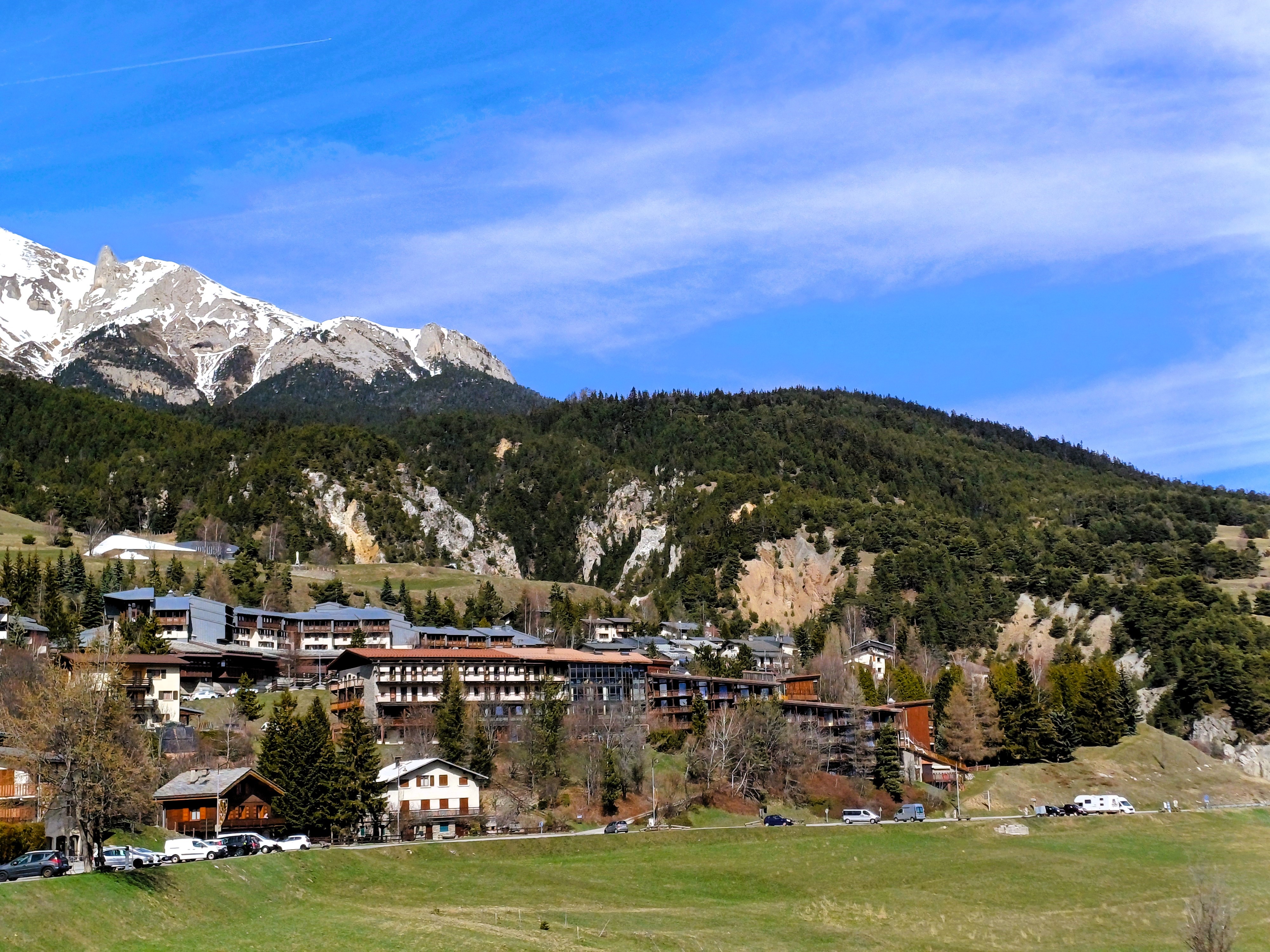 |
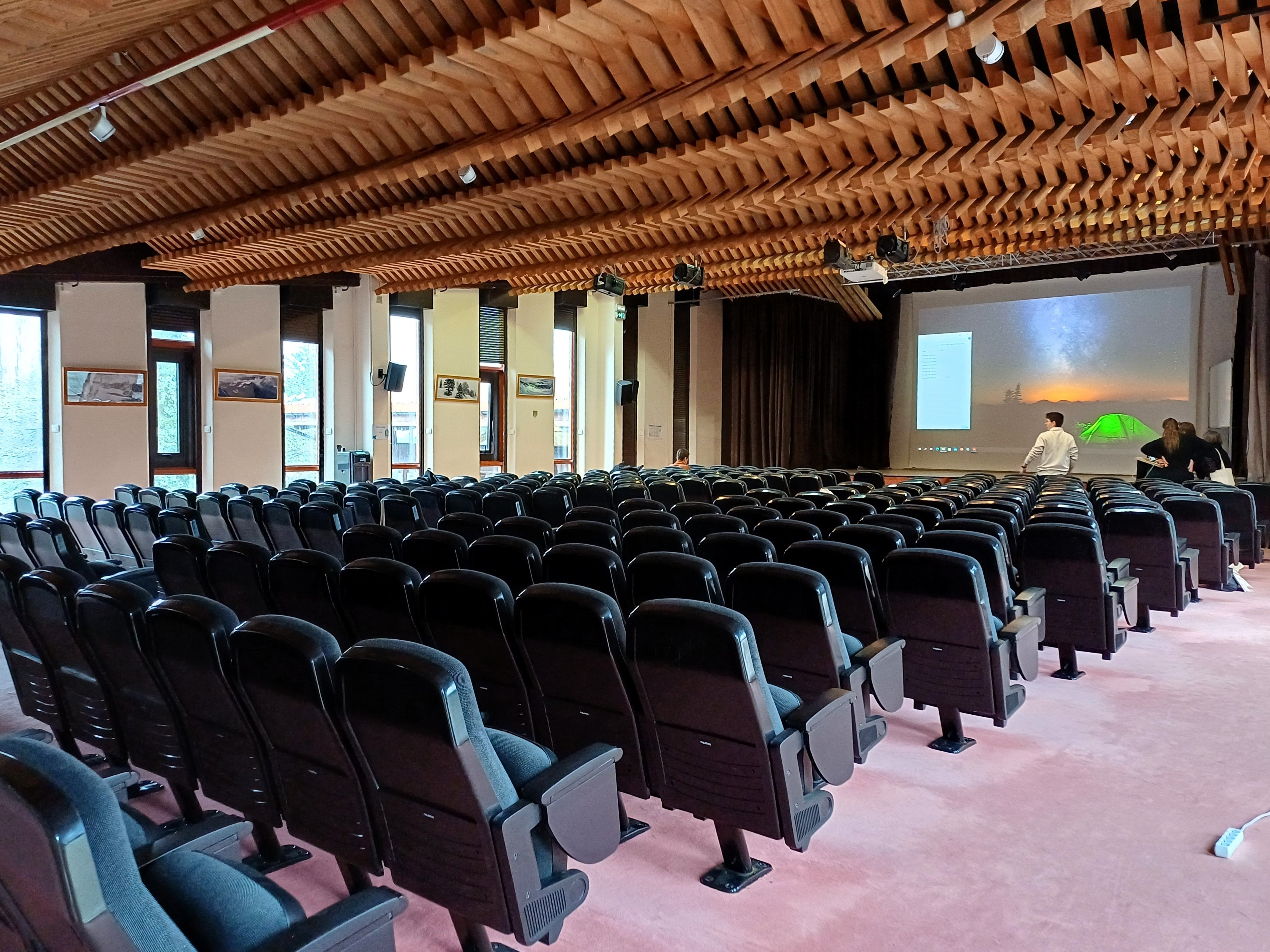 |
|
Views from the conference center |
|
Aussois village
 |
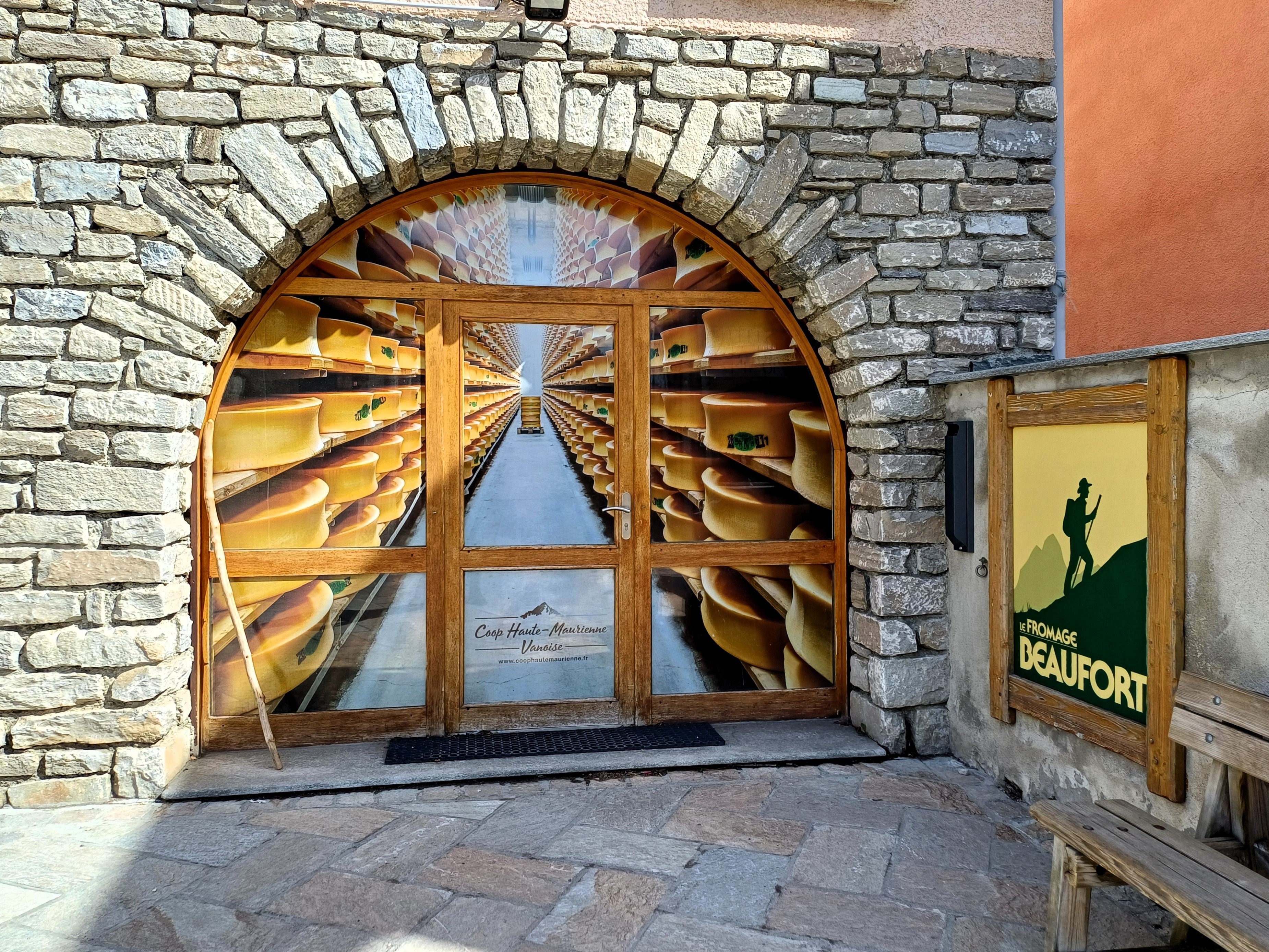 |
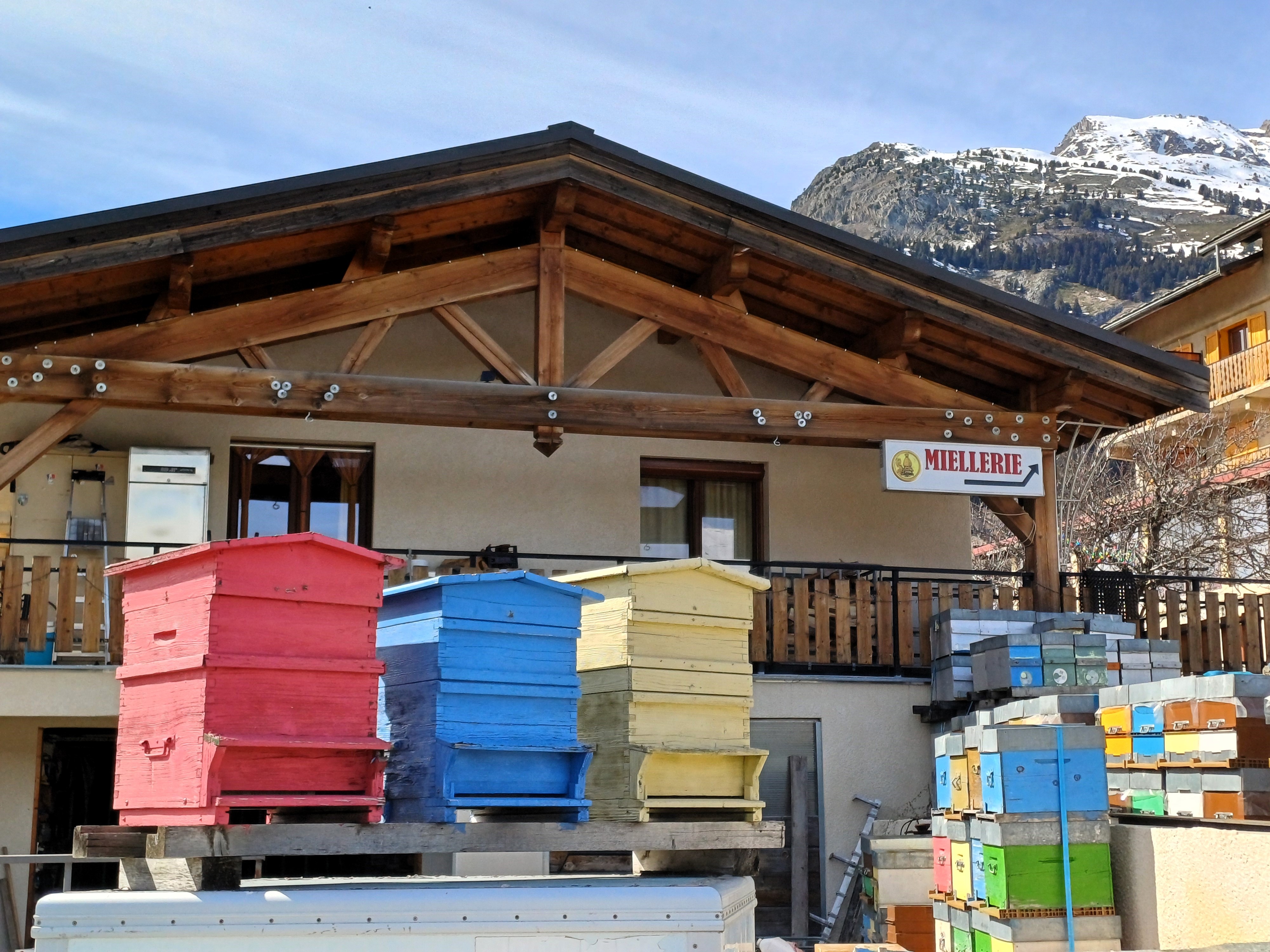 |
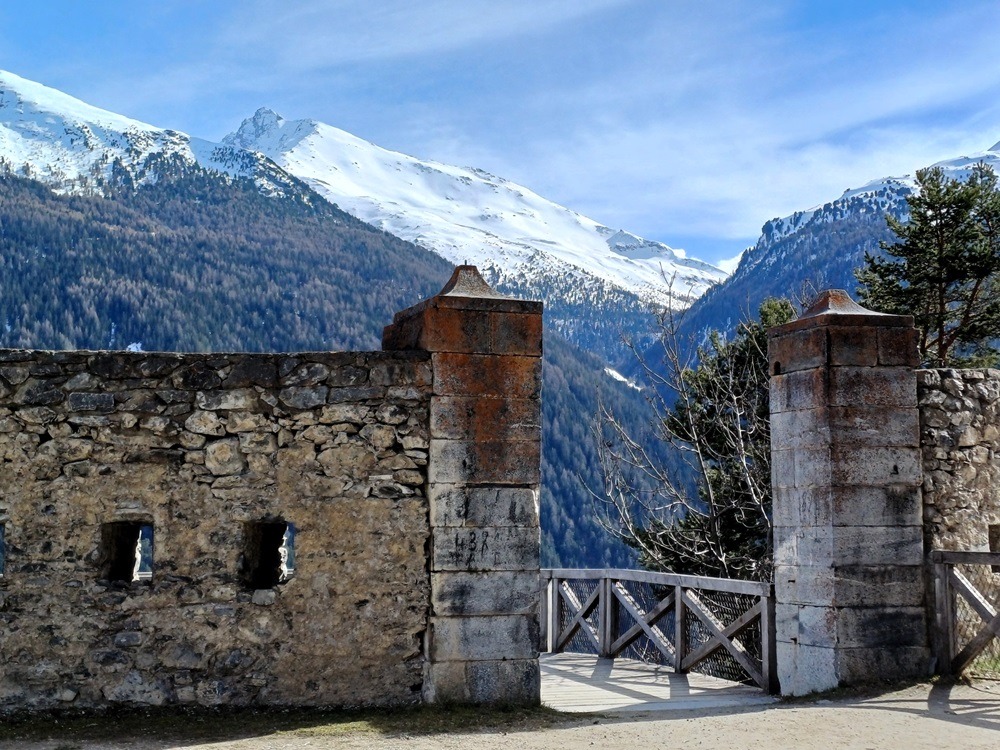 |
Sponsors
The successful organization of such a scientific event can only be achieved with the support of institutional and industrial partners. The GFPP and ItPS boards would be much honored if industrials, companies and institutions would like to take part as a partner to this outstanding congress.
It would be appreciated if industrials, companies and institutions could participate actively at their convenience through additional actions that will make them even more present in this exciting meeting. If your company cannot be represented at the meeting, there is still the opportunity to enclose promotional material into participant packages.
Keynote speakers
The titles of the interventions will be uploaded soon. Stay tuned.
| Florine | CAVELIER | Université Montpellier II | France |  |
| Anna Maria | PAPINI | Università di Firenze | Italy |  |
Invited speakers
Note: We thank Flaticon for images.
Organizing committee
Local Organizing Committee
Scientific committees
The Italian Peptide Society board members
WEB team
Oleg Melnyk, Webmaster
Centre d’Infection et d’immunité de Lille (CIIL, INSERM U1019 – CNRS UMR9017) – Lille
Loïc Stefan
Laboratoire de Chimie-Physique Macromoléculaire (LCPM, UMR 7375) – Nancy
François Hallé
UMR 5246 ICBMS
Université Claude Bernard Lyon 1- Faculté de Pharmacie-Lyon
|
21st October 2024 : |
|
| 31st January 2025 deadline for : |
|
|
28th February 2025 deadline for : |
|
Registration fees includes :
Different types of activities/excursions will be proposed on Tuesday afternoon. The program will be uploaded soon.
Please note that your registration will be effective upon receipt of your order form.
Be aware that due to the reception capacity of the CNRS Paul Langevin Center, the number of participants is limited to 200 people.
| Registration Type for academic labs | Until 28th February 2025 | Until 28th February 2025 | ||
|---|---|---|---|---|
| Student/ Post-doctoral fellow | ||||
| Academic delegate |
(a) The mentioned fees apply for a twin room – the bathroom will be shared in the respect of sanitary rules
(b) The mentioned fees apply for a twin room – the bathroom will be shared in the respect of sanitary rules
(c) The mentioned fees apply for private room including a private bathroom
| Registration Type for Private Company Delegate ONLY | |
|---|---|
| Twin room (b) | |
| Single room (c) | |
| Congress registration only |
(b) The mentioned fees apply for a two-bedroom apartment with two single-bedrooms – the bathroom will be shared in the respect of sanitary rules
(c) The mentioned fees apply for private apartment including a private bathroom
If you want your team to be considered as a GFPP team, just click on the button below to access the form for applying.
Why apply to/Advantages of a GFPP membership:
1/ access to a network of researchers and develop collaborations
2/ identify expertise on peptide science, from synthesis to applications
3/ share knowlegde and know-how
4/ find experts to take on new challenges
5/ gain recognition and visibility for our skills and expertise
Interactive table for finding GFPP teams by research themes
If you want your team to be considered as a GFPP team, just click on the button below to access the form and apply.
Why apply to/Advantages of a GFPP membership:
1/ access to a network of researchers and develop collaborations
2/ identify expertise on peptide science, from synthesis to applications
3/ share knowlegde and know-how
4/ find experts to take on new challenges
5/ gain recognition and visibility for our skills and expertise
Clicking on a specific region of the map will display all GFPP teams located in that area below the map.
GFPP teams, by location
(might not work on smart phones, please use an office computer)
Invited Speakers
| Prof Jason CHIN
Reprogramming the Genetic Code MRC Laboratory of Molecular Biology, UK |
 |
Jason Chin is a Programme Leader at the Medical Research Council Laboratory of Molecular Biology (MRCLMB), where he is also Head of the Centre for Chemical & Synthetic Biology (CCSB). He is a Professor of Chemistry & Chemical Biology at the University of Cambridge, and holds a joint appointment at the University of Cambridge Department of Chemistry. He is also a fellow in Natural Sciences at Trinity College, Cambridge.
Jason is a native of the UK. He was an undergraduate at Oxford University, where he worked with Professor John Sutherland on Cephalosporin biosynthesis. He obtained his PhD as a Fulbright awardee from Yale University, working with Professor Alanna Schepartz. He was a Damon Runyon Fellow at The Scripps Research Institute with Professor Peter Schultz where he developed the first approaches to systematically expand the genetic code of eukaryotic cells and pioneered approaches, that are now widely used, for defining protein interactions by genetically encoding photocrosslinking amino acids.
Jason’s work has been recognized by a number of awards, including: the Francis Crick Prize (Royal Society), the Corday Morgan Prize (Royal Society of Chemistry), European Molecular Biology Organization’s (EMBO) Gold Medal, Louis-Jeantet Young Investigator Career Award, Sackler International Prize in the Physical Science. He is in the European Inventors Hall of Fame, a member of EMBO, a Fellow of the Academy of Medical Sciences, and a Fellow of The Royal Society. Jason’s early work provided a foundation for Ambrx and he is the founder and CSO of Constructive Bio. He is also a non-executive director at the UK Government’s Department of Science, Innovation and Technology.
| Prof Benjamin DAVIS
Sugars and Proteins University of Oxford, UK |
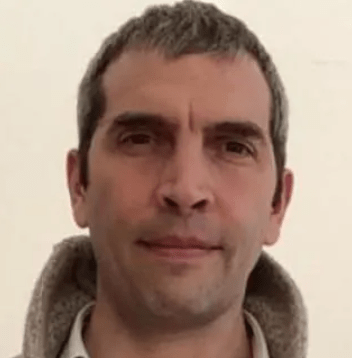 |
Ben Davis got his B.A. (1993) and D.Phil. (1996) from the University of Oxford. During this time he learnt the beauty of carbohydrate chemistry under the supervision of Professor George Fleet. He then spent two years as a postdoctoral fellow in the laboratory of Professor Bryan Jones at the University of Toronto, exploring protein chemistry and biocatalysis.
In 1998 he returned to the U.K. to take up a lectureship at the University of Durham. In the autumn of 2001 he moved to the Dyson Perrins Laboratory, University of Oxford and received a fellowship at Pembroke College, Oxford. He was promoted to Full Professor in 2005.
His group’s research centres on the chemical understanding and exploitation of biomolecular function (Synthetic Biology, Chemical Biology and Chemical Medicine), with an emphasis on carbohydrates and proteins. In particular, the group’s interests encompass synthesis and methodology; target biomolecule synthesis; inhibitor/probe/substrate design; biocatalysis; enzyme & biomolecule mechanism; biosynthetic pathway determination; protein engineering; drug delivery; molecular biology; structural biology; cell biology; glycobiology; molecular imaging and in vivo biology.
Ben was elected a Fellow of the Royal Society in 2015, and the Academy of Medical Sciences in 2019. He is Science Director of the Next Generation Chemistry theme and became the Interim Director for the Franklin in November 2023.
| Dr Klara HLOUCHOVA
Why these 20 amino acids and could life function with a different set? Charles University, Czech Republic |
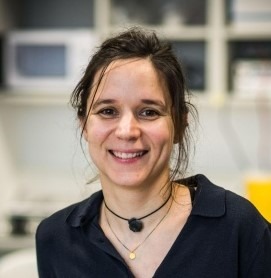 |
Klara Hlouchova is assistant professor and group leader in the department of cell biology of Charles University in Prague. She graduated with a MSc degree in biochemistry in 2005 and then started her PhD research at the Institute of Organic Chemistry and Biochemistry (IOCB) in Prague under the guidance of Prof. Jan Konvalinka.
She then moved to the University of Colorado Boulder, USA under the Cooperative Institute for Research in Environmental Sciences Postdoctoral Fellowship to pursuer her research on molecular evolution of enzymes and metabolic pathways in the laboratory of Prof. Shelley Copley.
Since 2017, Klara has been developing her independent research at Charles University in Prague where she became assistant professor in 2019. Her research topics focus on the design and characterization of proteins/protein libraries from canonical/reduced/unnatural amino acids by methods of synthetic biology. Her research group is interested in various aspects of protein evolution ranging from astrobiology and origins of life to protein engineering and synthetic life.
| Prof Beate KOKSCH
Construction and degradation of fluorinated biopolymers Freie Universität, Germany |
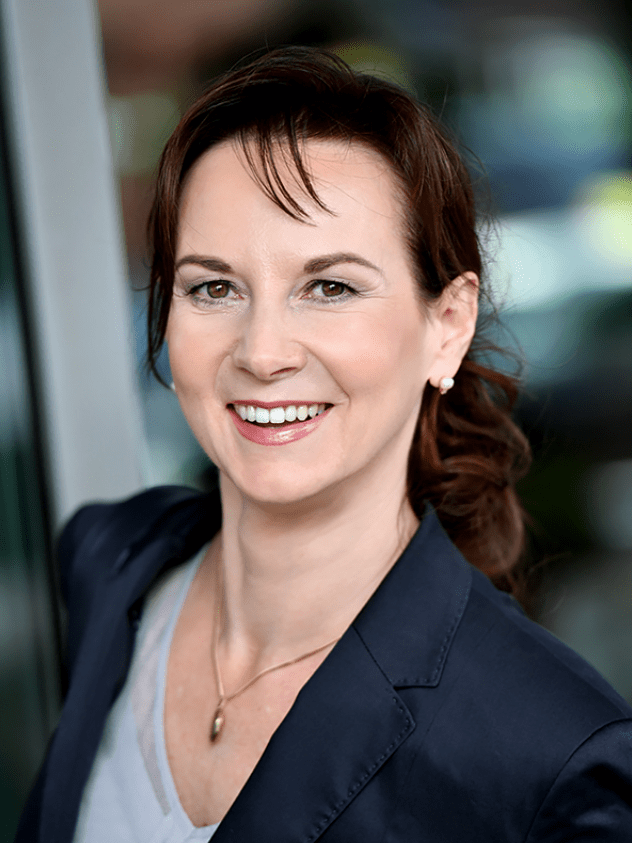 |
Prof. Dr. Beate Koksch studied chemistry at the Technical University Merseburg and University Leipzig in Germany, where she completed a PhD in biochemistry. Following a DFG postdoctoral research fellowship at The Scripps Research Institute in La Jolla, California, she started her independent career at University of Leipzig in 2000. In 2004, she assumed her position as Organic and Natural Product Chemistry Professor at the Freie Universität Berlin. Her research program at FU Berlin focuses on peptide and protein engineering with applications to current problems in biomedicine, biotechnology, and materials science. One key aspect that her research group has devoted its efforts to over the past 20 years is expanding the toolkit of building blocks to include fluorinated aliphatic amino acids to improve the pharmacokinetic and physicochemical profiles of peptide/protein-based drugs and materials, respectively. Advances in these areas rely on the combination of various scientific disciplines such as organic chemistry, biochemistry, molecular biology, biophysics, material sciences, analytics, and theory, and her group is collaborating with several groups at the Freie Universität Berlin, Max-Planck-Institutions and research goups nationally and internationally. Professor Koksch is a of the Max-Bergmann-Kreis for the Advancement of Peptide Chemistry, the GDCh division of Fluorine Chemists, elected board member of the European Peptide Society as well as serves as Editorial Advisory Board member of several scientific journals and. Professor Koksch had been Director of the DFG Graduate Program “Fluorine as a Key Elements” that was running in Berlin from 2009-2018. She has received the 2021 ACS Award for Creativity in Fluorine Chemistry.
| Prof Norbert SEWALD
Enzymatic Halogenation: Methodology for Late‐Stage Peptide Diversification and Protein Modification Bielefeld University, Germany |
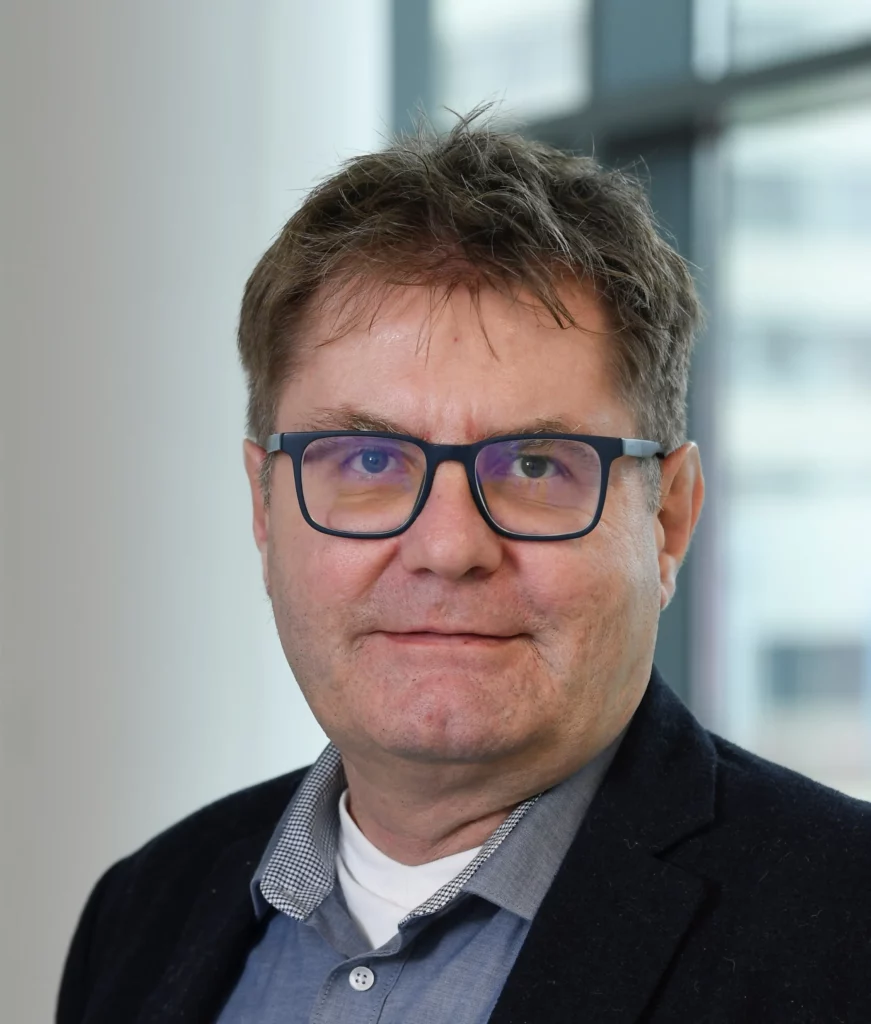 |
Norbert Sewald is a professor of Organic, Bioorganic Chemistry, and Chemical Biology at Bielefeld University. He studied chemistry at the Technical University of Munich. In 1991, he obtained his Ph.D. thesis in Organic Chemistry with Prof. Burger. From 1991 to 1992, he worked as a postdoctoral researcher in the group of Prof. J. E. Baldwin at the Dyson Perrins Laboratory at Oxford University. In 1998, he obtained his habilitation at the University of Leipzig. Since 1999, he has been full professor at Bielefeld University.
Prof. Sewald’s research group focuses on non-canonical amino acids and peptidomimetics in peptides and proteins. Special emphasis is placed on enzymatic halogenation, late-stage modification of peptides and peptidomimetics, and tumor targeting.
ncAAs 2024 venue
The ncAAs-2024 “Noncanonical amino acids (ncAAs): Tools for Biological and Biophysical Investigations” meeting will be held on October 14th and 15th, 2024 in Paris.
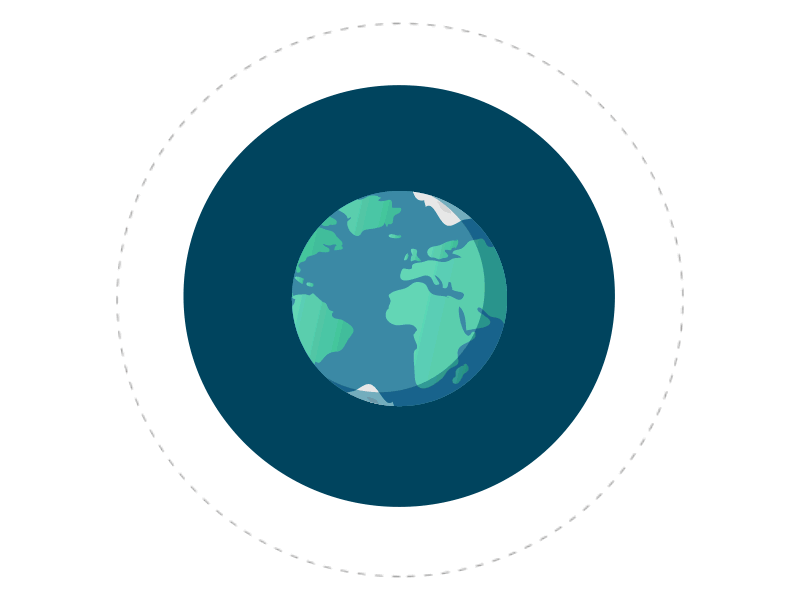 |
This event will be held in Campus des Cordeliers (Sorbonne Université, 15 rue de l’Ecole de Médecine, Paris 6e) in the centre of Paris very close to the Latin Quarter situated on the left bank of the Seine. |
[iframe src=”https://www.google.com/maps/embed?pb=!1m18!1m12!1m3!1d2207.6729558764127!2d2.339164880120165!3d48.85095642261929!2m3!1f0!2f0!3f0!3m2!1i1024!2i768!4f13.1!3m3!1m2!1s0x47e671ddd2dc4a6b%3A0x167760abc9f0306!2s15%20Rue%20de%20l'%C3%89cole%20de%20M%C3%A9decine%2C%2075005%20Paris!5e0!3m2!1sfr!2sfr!4v1705420381600!5m2!1sfr!2sfr” width=”600″ height=”450″ style=”border:0;” allowfullscreen=”” loading=”lazy” referrerpolicy=”no-referrer-when-downgrade”]
Paris is accessible by train or plane (Roissy Charles de Gaulle Airport, Orly Airport, Beauvais Airport).
The Campus de Cordeliers is accessible by car and public transportation:
Métro: Lines 4 or 10 (Odéon station)
RER B : Saint-Michel or Luxembourg stations
RER C : Saint-Michel station
Bus: Lines 38, 27, 58 (Rue des Ecoles or Odéon stop) and lines 63 et 86 (Cluny stop)
Parking (charged) is available close to the Campus Parking (entrance from rue de l’école de médecine)
Time to the meeting
The 2nd edition of the “Noncanonical amino acids (ncAAs): Tools for Biological and Biophysical Investigations” meeting will be held on October 14th and 15th, 2024 in Paris. The conference is jointly organized by Sorbonne Université and CY Cergy-Paris Université and the GFPP (Groupe Français des Peptides et Protéines – French Peptides Society) will partner with this event.
This event will be held in Campus des Cordeliers (15 rue de l’Ecole de Médecine, Paris 6e). It will bring together up to 150 participants, chemists and biologists from public and private sectors. The scientific program will span the interface between chemistry and biology, with the participation of prestigious international speakers.
A considerable part of the congress program will be dedicated to communications presented by young scientists: about 15 oral presentations will be selected from submitted abstracts, and ample space will be available for poster communications. The proceedings of the congress will be published in the form of an abstract book, and partners who agree to sponsor this congress will be acknowledged upfront in this book, as well as on the ncAA website.
All participants will have to register online. For any enquiry, please contact us:
| Meeting venue |  |
| Meeting program |  |
| Invited speakers |  |
| Abstract submission & guidelines
Dead lines: September 8th for posters & oral communications |
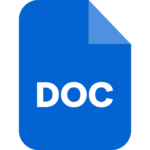 |
| Registration
Dead line: Septembre 15th |
 |
Looking forward to seeing you in Paris!
The organizing committee
Topics covered by the meeting:
• Cell Free Expression
• Amber codon
• Noncanonical amino acid synthesis
• Expanded genetic code
• Auxotrophic strains
• Protein labeling
• tRNA synthetase engineering
• Single molecule imaging
• Photo-crosslinking
Organizing committee:
Dr Grégory CHAUME (CY Cergy Paris Université, FRANCE)
Dr Maud LARREGOLA (CY Cergy Paris Université, FRANCE)
Prof Olivier LEQUIN (Sorbonne Université, FRANCE)
Dr Emeric MICLET (Sorbonne Université, FRANCE)
Dr Pierre MILBEO (CY Cergy Paris Université, FRANCE)
Dr Chiara ZANATO (CY Cergy Paris Université, FRANCE)
ncAAs 2024 Abstract submission & Guidelines
On the basis of the abstracts submitted, the scientific committee will select 15 short presentations (15 min, question includes), giving preference to young researchers (PhD students or PostDocs).
An ample space will be available for poster communications. Please note that we do not print the posters, but racks & pins will be provided for up to A0 sizes, in portrait format.
The proceedings of the congress will be published in the form of an abstract book
Abstract submission
Please, use the following template to prepare your abstract:

Please name the file as follows: ncAAs 2024_Abstract_YourName
Composition of previous GFPP committees
| 2022-2023* | ||
| Name | Surname | Specific mission |
| Cantel | Sonia | Newsletter |
| Chaume | Grégory | Vice-president |
| Faure | Sophie | President |
| Garanger | Elisabeth | Secretary/social networks |
| Giraud | Matthieu | Social networks |
| Inguimbert | Nicolas | |
| Landon | Céline | Broadcast list |
| Lequin | Olivier | Treasurer |
| Melnyk | Oleg | French EPS representative, Webmaster |
| Milazzo | Isabelle | |
| Sénèque | Olivier | |
| Stefan | Loic | Webteam |
| Tonali | Nicolo | Webteam |
* With the assistance of Frédéric Bihel to the webteam.
| 2019-2022 | ||
| Name | Surname | Specific mission |
| Aucagne | Vincent | |
| Bihel | Fréderic | Webmaster |
| Cantel | Sonia | President |
| Cavelier | Florine | French EPS representative |
| Chaume | Grégory | Secretary |
| Faure | Sophie | Newsletter, Broadcast list |
| Garanger | Elisabeth | |
| Giraud | Matthieu | |
| Inguimbert | Nicolas | Vice-president |
| Lequin | Olivier | Treasurer |
| Milazzo | Isabelle | |
| Ochsenbein | Françoise | |
| Sénèque | Olivier | |
| 2017-2019 | ||
| Name | Surname | Specific mission |
| Aitken | David | Vice-president |
| Aucagne | Vincent | President |
| Ayoub | Mimoun | |
| Bihel | Fréderic | Webmaster |
| Cantel | Sonia | |
| Cavelier | Florine | French EPS representative |
| Chaume | Grégory | Secretary |
| Colau | Arthur | Treasurer |
| Couve-Bonnaire | Samuel | |
| Faure | Sophie | |
| Garanger | Elisabeth | |
| Miclet | Emeric | |
| Ochsenbein | Françoise | |
| Sénèque | Olivier | |
CPP2024 Key Dates
| April 30th, 2024 | Deadline for oral communication submission |
| May 5th, 2024 | Deadline for poster submission |
| May 5th, 2024 | End of registration |
Abstract submission
Please, use the following template to prepare your abstract:

Please name the file as follows: CPP2024_Abstract_YourName
We thank our sponsors
GFPP membership for teams

Program & guidelines for presentations
CPP2024-program_31_05_2024
(updated May 31, 2024)
Abstract book
(updated June 06, 2024)
We thank our sponsors

Montpellier is close to the Mediterranean Sea, in the south-east of France, in the Hérault department, whose territory is defined as an amphitheater open to the sea, bordered by the Cévennes to the north-east and the Haut-Languedoc to the north-west.
 |
 |
Montpellier is accessible by:
– Plane: Airport Montpellier Méditerrannée
– Train: Station Saint-Roch (in the city center) or Station Montpellier Sud de France (outside of the city)
Thanks to 4 lines of tramway, ample bus services (line 6, 7, 8, 11, 12, 16), taxis, you can go anywhere your heart desires in and around Montpellier.
The CPP-2024 conference on “Cell-Penetrating peptides: Next generation delivery systems” will be held on June 10-12, 2024, in the Botanical Institute of Montpellier.
“With its four million samples of rare plants kept on six floors, this herbarium is unique in France. Now a property of the University of Montpellier, the collection began with Charles Flahaut in 1889 and then enriched. The oldest pieces may be those of the Chirac collection, the 17th century, or the famous Delile herbarium brought back to Egypt’s campaign in 1798…”
 |
The Botanical Institute of Montpellier is in the west of Montpellier close to the historic center and is situated at the following address: 163 Rue Auguste Broussonnet, 34090 Montpellier. |
Access via tramway 1 (Station Albert 1er – Saint-Charles) or tramway 4 (Station Albert 1er -Cathedrale)
Different hotels and accommodations are available in the near. Here a selection of hotels that you can contact:
Many other hotels of different categories are also available in the city center (near the Place de la Comédie), located only 5 tramway stations (12 min transportation) from the Conference Hall.
We thank our sponsors

CPP2024 Key Dates
Please note that registration at the “Cell-Penetrating Peptides: Next generation delivery systems” conference will be limited to the first 200 attendees
| April 30th, 2024 | Deadline for oral communication submission |
| May 5th, 2024 | Deadline for poster submission |
| May 5th, 2024 | End of registration |
| Registration fees inclue VAT (10%) | |
| Registration types | Fees |
| Students / PhDs | 165 € |
| Academics / PostDocs | 275 € |
| Private company delegates | 330 € |
Registration fees include:
| Registration site |
We thank our sponsors

CPP2024 Invited Speakers
Steven F. Dowdy, Ph.D., is Professor of Cellular & Molecular Medicine at UCSD School of Medicine. He received his PhD in Molecular Genetics from the University of California Irvine with Prof. Eric Stanbridge and was a postdoctoral fellow with Prof. Bob Weinberg at the Whitehead Institute, MIT. In 1994, Dr. Dowdy became an Investigator at the Howard Hughes Medical Institute and an Assistant Professor at Washington University School of Medicine. He moved his lab to UCSD in 2001. His early research focused on understanding the molecular basis of G1 cell cycle deregulation during oncogenesis by RB, p16, and cyclin:CDK complexes, determining that cyclin D:CDK4 complexes activated RB by mono-phosphorylation. Concurrently, his research also focused on the intracellular delivery of macromolecular therapeutics, including siRNAs, ASOs, peptides, and proteins. His recent work over the last 10+ years has focused on developing new chemistry to tackle the rate-limiting endosomal escape problem that plagues the intracellular delivery of all macromolecular therapeutics. Dr. Dowdy has been advising biotech and pharmaceutical companies for 35 years, he currently sits on five biotech science advisory boards and is co-founder of Clear Skies Bio. He was an elected board member of the Oligonucleotide Therapeutics Society (OTS) and remains on the OTS science advisory board.
Sarah Jones is a Reader in Pharmacology and a member of the Molecular Pharmacology Research Group at the University of Wolverhampton. For the past 20 years, Sarah’s research has focused on Cell Penetrating Peptides (CPPs) and she has played a major role in the development of bioactive CPPs, bioportides. This has resulted in a paradigm shift from the use of CPPs merely as inert vectors, to their applicability and therapeutic utility as modulators of intracellular protein-protein interactions. Identification of these novel cryptic CPPs within key signaling proteins has resulted in scientific publications regarding the utility of bioportide technology in apoptosis, angiogenesis, and Parkinson’s disease pathophysiology. In 2013, the Molecular Pharmacology Group reported that CPPs readily enter spermatozoa. This development precipitated the subsequent identification of bioportides capable of penetrating human sperm cells to modulate the activities of intracellular proteins that control calcium signaling, motility, and fertilization capacity and as such has laid the foundations for the development of a non-hormonal male contraceptive.
Hanne Mørck Nielsen´s research is focused on drug delivery of biotherapeutics, mainly peptides. Her work is interdisciplinary and involves designing and characterizing functional excipients and drug delivery systems and understanding their delivery propensity related to interactions with biobarriers such as mucus and epithelia, and how this translates to therapeutic responses. Membrane-interacting peptides, and in particular cell-penetrating peptides, their mode of action, and delivery efficiency have been investigated. Hanne Mørck Nielsen completed her PhD in Pharmaceutical Sciences on buccal drug delivery of peptides on research conducted at the Royal Danish School of Pharmacy, Denmark and Leiden/Amsterdam Center for Drug Research, the Netherlands. After a post doc at ETH Zürich, Switzerland working on cell-penetrating peptides, she was employed at the University of Copenhagen and in 2016 promoted to full Professor in Biopharmaceuticals – Drug Design and Delivery. She is Director of the BioDelivery Center and the Drug Delivery and Biophysics of Biopharmaceuticals group at Department of Pharmacy, University of Copenhagen.
Meritxell Teixidó holds a PhD in Organic Chemistry from the University of Barcelona (UB) and an eMBA in Entrepreneurship, Innovation and International Business from UOC. At a scientific level, her field is the synthesis of peptides and the discovery of peptides capable of crossing biological barriers and she was responsible for this research line at the IRB Barcelona for more than 15 years, where she co-directed 10 doctoral theses, published more than 50 articles and participated in 7 patents.
After dedicating more than 15 years to biomedical research at IRB Barcelona, trying to improve the arrival of drugs to the brain by crossing the blood-brain barrier that protects it. She decided to jump more barriers and be the CEO/CSO of Gate2Brain SL. in order to bring technology closer to patients, a challenge and an honor. Jumping barriers is perhaps the common thread that describes her, combining science and innovation with a new vision on leadership, for which she received the Spanish Woman Startup Award 2022 – Inspiration.
Kaido Kurrikoff focuses his research on drug delivery methods, nucleic acid therapeutics, and nucleic acid diagnostics. His background from the PhD studies is Neuroscience and animal models for CNS-related pathologies. Currently, he is exploring the possibilities of developing CPP-based carrier systems for delivering macromolecular therapeutics. He is focused on development nucleic acid delivery methods through in vivo preclinical models, mainly using cancer gene therapy.
Tamas A. Martinek was born in Szeged, Hungary, in 1973. After obtaining his MSc in Chemistry from University of Szeged, Hungary, in 1996, he earned his PhD degree at the same university in 2001 under the supervision of Ferenc Fülöp and with the guidance of Frank G. Riddell at the University of St. Andrews, UK. He is full professor and the head of the Department of Medical Chemistry, Albert Szent-Györgyi Medical School, University of Szeged. He started his independent career in the field of peptidic foldamers focusing on their controlled secondary and tertiary structures. He is currently active in the field of biomimetic self-organizing systems and their applications in drug discovery: endocytotic cell penetration, antimicrobial foldamers, modulation of protein-protein interactions, light-fueled peptidic replicators.
Astrid Walrant did her PhD in Paris, at the Laboratoire des Biomolecules, Pierre et Marie Curie University, under the supervision of Isabel Alves and Sandrine Sagan, between 2008 and 2011. Her Ph.D. work focused on the analysis of peptide/membrane interactions in the context of cell-penetrating peptides.
In 2012, Dr Walrant joined Jenny Gallop’s group at the Gurdon Institute, Cambridge University, as a postdoctoral research fellow. I worked on the regulation of actin polymerization by lipid membranes. My work focused on the regulatory role of certain phosphoinositides, membrane curvature, and curvature-inducing proteins.
In 2014, Dr. Walrant came back to Paris and joined the Laboratoire des Biomolecules as Assistant Professor attached to the Chemistry Faculty. Her research focuses on the analysis of the mechanism of action of membrane-active peptides (cell-penetrating, antimicrobial, viral…) at a molecular level, using biophysical approaches.
Ines Neundorf studied chemistry at the Universities of Freiburg and Leipzig and obtained her diploma in chemistry at the University of Leipzig in 2001. In 2003, she completed her doctorate in organic chemistry there. She then did her Habilitation in Leipzig in the group of Professor Dr. Annette Beck-Sickinger (Venia Legendi in Bioorganic Chemistry). In 2011, during the completion of her Habilitation, she accepted the offer of a junior professorship (with tenure track) in biochemistry at the University of Cologne’s Institute of Biochemistry. In 2016, she was tenured as W2 Professor of Biochemistry. Since 2022, she has been Vice-Dean for Equality, Diversity and Early-Career Researchers at the Faculty of Mathematics and Natural Sciences. She is a member of the University of Cologne’s Advisory Board for Equal Opportunities and since October 2023 she is Vice-Rector for Academic Career and Staff Development.
Her main research interests are in the fields of bioactive peptides, such as: antimicrobial peptides, cell-penetrating peptides, organelle targeting sequences, peptide synthesis and modification, peptides in tumor diagnosis and therapy. Her research results have been published in numerous peer-reviewed journals, and she is co-author of >90 peer-reviewed publications and 4 book chapters. Ines Neundorf is an associate editor of Scientific Reports and since 2013, she has been a member of the Max-Bergmann-Kreis e.V., a network promoting research work in peptide chemistry in Germany, Switzerland and Austria.
Tõnis Lehto is Research Fellow at University of Tartu, Estonia. Tõnis Lehto is a dedicated researcher who defended his PhD in Stockholm University 2018 where he studied nucleic acid delivery with fatty acid modified cell-penetrating peptides (PepFects).
After PhD, his research focus turned to developing scalable microfluidic technologies for formulating RNA therapeutics into precisely defined nanoparticles with novel hydrophobically modified peptides called hPeps.
Currently, he is working on bridging the gap between peptide-based and lipid nanoparticles (LNPs), both in terms of formulation technology and therapeutic applications.
Christian Widmann received his MSc in biology in 1986. He obtained his PhD at the Biochemistry Institute of the University of Lausanne in 1991 under the supervision of Giampietro Corradin. He then worked on the GLP1 receptor as a post-doctoral fellow in the laboratory of Bernard Thorens until 1995. Christian obtained a fellowship from the Swiss National Science Foundation in 1996 to move to the laboratory of Gary L. Johnson at the National Jewish Medical and Research Center in Denver, Colorado, where he worked as a research associate on MAPK pathways until 1998. In 1999, he moved back to Europe and started his own research group at the University Hospital in Lausanne. In 2002, he got an assistant professor position at the Department of Cell Biology and Morphology at the University of Lausanne.
Since 2006, he is an associate professor at the Department of Physiology of the University of Lausanne (now Department of Biomedical Sciences). The first wave of his research was centered on the regulation of cellular stress and how a better understanding of these mechanisms at the molecular level could lead to the development of therapeutic compounds to treat various diseases such as cancer, microbial infections, and diabetes. The current focus of his laboratory is on the mechanisms of entry of cell permeable peptides
We thank our sponsors